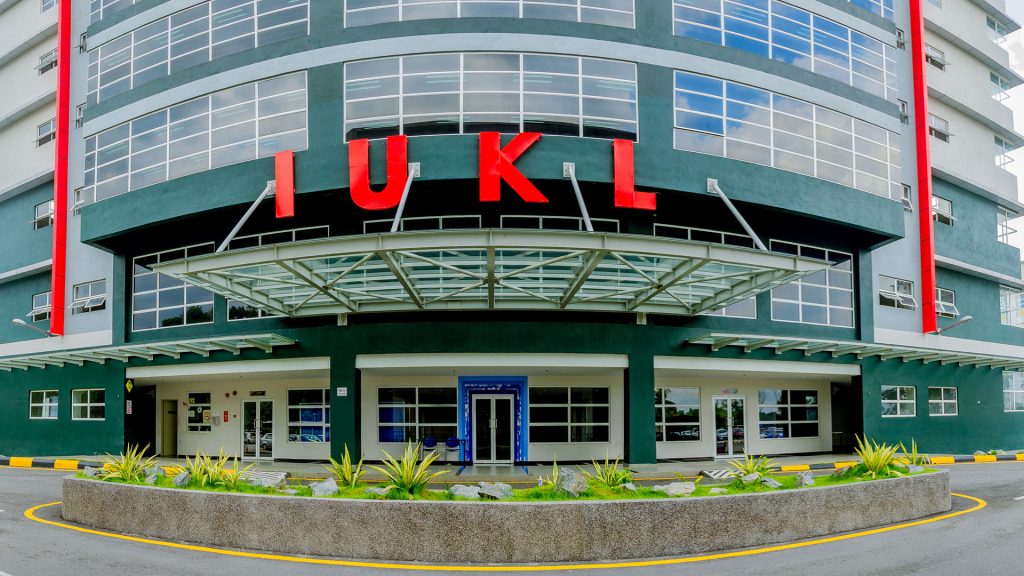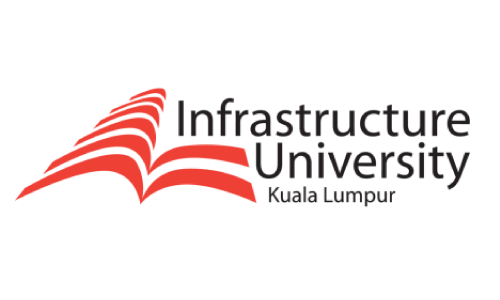ABOUT THIS PROGRAMME
This course will equip you with the knowledge of electrical and electronic devices and systems with a strong emphasis on embedded systems, networking, communications, automobiles and machinery control.
The Electrical and Electronics industries will continue growing by the increased use of wearable gadgets, smart home applications, the automotive industry, and the increasing use of artificial intelligence technologies along with the consumer demand.
Is this programme for me?
If you enjoy hands-on or practical work then this course is suitable for you.
What will I learn?
Students will learn on integration of mathematics and physics in electrical and electronics applications or systems.
What should I expect?
This programme exposes students to up-to-date theoretical and practical aspects of electronics system, electrical power and their applications. Students will be trained with the capability of addressing engineering related problems of the industry.
Graduates will be equipped with a background in software along with full electrical and electronics engineering hardware foundations.
What are the career prospects?
Diploma holders can work in various industries including:
- Electrical & Electronics Manufacturers
- Robotics & Automation Industries
- Computing and Telecommunications Industries
- Industrial Machinery and Instrument
- Engineering Consulting Firms
- Consumer & Industrial Electronics Industries.
How much will I make?
The average salary for an Electrician in Malaysia is around RM31,200 per year. But of course, your salary will also depend on the company and the country that you work for.
Is this programme accredited?
Yes, this programme is fully accredited by the Malaysian Qualifications Agency (MQA).
Did you know?
This course provides a strong foundation in electrical and electronic fundamentals, which will open the door to many other further studies or job options, because electrical and electronics is so pervasive and found in almost every device, appliance or gadgets today.
| PROGRAMME EDUCATIONAL OBJECTIVES (PEO) : | |
|---|---|
| PEO 1 | Graduates demonstrate technical competence in electrical and electronics engineering field in infrastructure development. |
| PEO 2 | Graduates participate in sustainable development of global society. |
| PEO 3 | Graduates engaged in lifelong pursuit of knowledge and interdisciplinary learning. |
| PROGRAMME LEARNING OUTCOMES (PLO): | |
|---|---|
| PLO 1 | Engineering Knowledge – Apply knowledge of mathematics, science, electrical and electronic engineering fundamentals and an engineering specialization as specified in DK1 to DK4 respectively to wide practical procedures and practices. |
| PLO 2 | Problem Analysis – Identify and analyse well-defined engineering problems reaching substantiated conclusions using codified methods of analysis specific to electrical and electronic engineering activity. (DK1 to DK4) |
| PLO 3 | Design/Development of Solutions – Design solutions for well-defined technical problems and assist with the design of systems, components or processes to meet specified needs with appropriate consideration for public health and safety, cultural, societal, and environmental considerations. (DK5) |
| PLO 4 | Investigation – Conduct investigations of well-defined problems; locate and search relevant codes and catalogues, conduct standard tests and measurements. |
| PLO 5 | Modern Tool Usage – Apply appropriate techniques, resources, and modern engineering and IT tools to well-defined engineering problems, with an awareness of the limitations. (DK6) |
| PLO 6 | The Engineer and Society – Demonstrate knowledge of the societal, health, safety, legal and cultural issues and the consequent responsibilities relevant to engineering technician practice and solution to well-defined engineering problems. (DK7) |
| PLO 7 | Environment and Sustainability – Understand and evaluate the sustainability and impact of engineering technician work in the solution of well-defined engineering problems in societal and environmental contexts. (DK7) |
| PLO 8 | Ethics – Understand and commit to professional ethics and responsibilities and norms of technician practice. (DK7) |
| PLO 9 | Individual and Team Work – Function effectively as an individual, and as a member in diverse technical teams. |
| PLO 10 | Communication – Communicate effectively on well-defined engineering activities with the engineering community and with society at large, by being able to comprehend the work of others, document their own work, give and receive clear instructions. |
| PLO 11 | Project Management and Finance – Demonstrate knowledge and understanding of engineering management principles and apply these to one’s own work, as a member or leader in a technical team and to manage projects in multidisciplinary environments. |
| PLO 12 | Life Long Learning – Recognize the need for, and have the ability to engage in independent and updating in the context of specialized technical knowledge. |
CHECK IF YOU ARE ELIGIBLE
| SPM/SPMV | Minimum 3 Cs (including Mathematics and a Science/Technical/Vocational subject) and pass in English |
| O-Level | Minimum 3 Cs (including Mathematics and a Science/Technical/Vocational subject) and pass in English |
| UEC | Minimum 3 Bs (including Mathematics and a Science/Technical/Vocational subject) and pass in English |
| Certificate Level 3 MQF | Minimum CGPA of 2.00 |
| Certificate/SKM III (Technical & Vocational) | Minimum CGPA of 2.00 and 1 year experience in related field or 1 semester of enhancement programme. |
| Other Qualifications | As recognised by the Senate of IUKL as equivalent to SPM |
HND: Higher National Diploma,
SAM: South Australian Matriculation,
HSC: Higher School Certificate,
AUSMAT: Australian Matriculation,
CIMP: Canadian International Matriculation Programme,
IB: International Baccalaureate Diploma,
STPM: Sijil Tinggi Persekolahan Malaysia,
SPM: Sijil Peperiksaan Malaysia
| ENGLISH LANGUAGE REQUIREMENT (INTERNATIONAL) | |
|---|---|
| IELTS | 5 |
| TOEFL (PBT) | 500 |
| TOEFL (IBT) | 42 |
| PTE | 47 |
| MUET | BAND 3 |
| Cambridge English | 154 |
WHAT WILL YOU LEARN?
Year 1
Bahasa Kebangsaan A (National Language A), Circuit Theory, Computer Programming, Engineering Drawing, Mathematics 1, Mathematics 2, Mathematics 3, Physics, Physics Lab, Technical English 1, Technical English II, Workshop Technology for Engineers
Year 2
Basic Communication Theory, Circuit Theory II, Circuit Theory Lab, Digital Electronic, Digital Electronic Lab, Measurement and Instrumentation, Electromagnetism, Electronic II, Management for Engineers, Pengajian Islam / Moral (Islamic Studies / Moral Studies), Power System, Power System Lab, Power Electronics, Electrical Wiring Installation
Year 3
Control System Design, Electronic Laboratory, Final Project, Microprocessor, Microprocessor Laboratory, Electrical Power System, Practical Training














